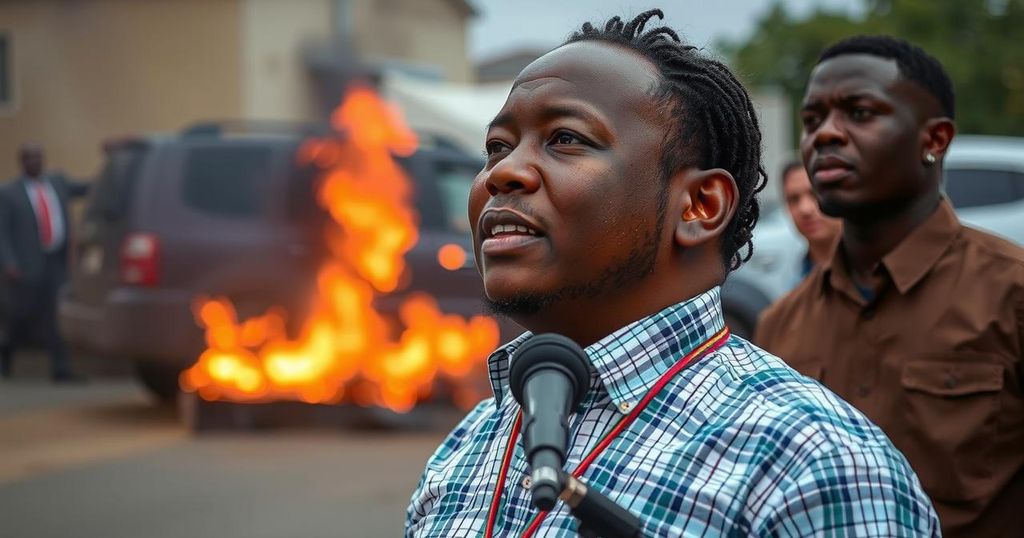Mozambique is facing severe unrest after the ruling Frelimo party’s election victory. Over 278 people have died since the elections, primarily in urban riots fueled by accusations of electoral fraud. Widespread violence, vandalism, and economic instability have led to thousands fleeing to neighboring countries, highlighting a critical socio-political crisis. Immediate concerns include law enforcement’s response and the safety of civilians amid escalating violence.
Mozambique is currently experiencing significant turmoil following the announcement of the ruling Frelimo party’s victory in the October 9 election, a party that has been in power for five decades. This announcement has ignited widespread unrest, escalating into urban riots that have already resulted in 278 deaths since early October. Much of this violence is concentrated in the capital, Maputo, where opposition groups, alleging electoral fraud, have taken to the streets in protest.
Post-election violence has involved severe crackdowns by security forces, with reports indicating that over 4,200 individuals have been arrested since the unrest began. The situation worsened during the Christmas period when more than 1,500 inmates escaped from Maputo’s central prison amidst the chaos, further complicating law enforcement efforts. In Maputo, the environment has become increasingly violent, with numerous instances of vandalism, including the destruction of ambulances and local businesses.
Daniel Chapo, the newly elected president of Mozambique, has appealed for calm and unity amidst the turmoil, while opposition leader Venancio Mondlane has accused security forces of exacerbating the situation to impose a state of emergency. International observers have noted significant irregularities during the election process, highlighting the growing tensions between the ruling party and opposition forces. The violence has severely impacted the economy, leading to inflation and supply chain disruptions in essential goods.
The unrest has also targeted foreign companies, which have become entangled in the protests. Recent disruptions have forced companies like TotalEnergies to delay critical projects, further strain supply chains, and heighten inflationary pressures in the economy. As the situation escalates, thousands of Mozambicans are fleeing to neighboring countries to escape the violence and instability, marking a troubling period in Mozambique’s political landscape.
The current unrest in Mozambique is rooted in the contentious post-election period following the victory of the ruling Frelimo party, which has faced allegations of electoral fraud and manipulation. This discontent has manifested itself violently, resulting in significant civilian casualties, widespread property destruction, and a humanitarian crisis manifested through mass arrests and prison escapes. Given the historical context of Frelimo’s long-standing governance without significant political opposition, this situation highlights entrenched societal frustrations over governance, economic disparities, and state security policies amidst increasing violence in urban areas. Moreover, the aftermath of recent election unrest has profound implications for Mozambique’s economy and socio-political stability, with significant potential repercussions for international investment and local markets.
In summary, Mozambique is enduring a critical phase of civil unrest ignited by disputed election results and perceived injustices under the ruling Frelimo party. The alarming scale of violence, marked by numerous fatalities and mass arrests, reflects deep-rooted grievances within the population. With the economic ramifications of the unrest potentially exacerbating hardship for ordinary citizens, and international observers flagging irregularities in the electoral process, the path forward remains uncertain. As the situation evolves, the calls for unity amidst chaos and the growing dissent within society will be important factors in Mozambique’s future.
Original Source: international.la-croix.com






